My Cart
Your cart is empty
Looks like you haven't made your choice yet.
Checkout using your account
This form is protected by reCAPTCHA - the Google Privacy Policy and Terms of Service apply.
Checkout as a new customer
Creating an account has many benefits:
- See order and shipping status
- Track order history
- Check out faster
The History of Diplomas: By Understanding the Past, We Make Great Fakes Today!
Can you imagine being part of a business that lives and breathes diplomas? A business where you have access to graduation certificates from prestigious schools all over the world? If you do, you probably know a thing or two about the history of diplomas. You may have even contemplated writing a paper on the subject!
At Diploma Company, we take our love for diplomas seriously. As the most trusted provider of fake diplomas, we receive countless photographs of real diplomas from our customers. They share these images with us to request a replication of their original diploma or simply to confirm that we are aware of the design and details of the actual certificate. Thanks to our vast collection of diplomas, spanning different schools and countries, our design team is able to create unique templates that honor the original document.
What is the oldest diploma you've collected?
The oldest diploma in our collection dates back to the early 1910s. One of our employees stumbled upon it at an estate sale and brought it back to the office for us all to admire. As passionate diploma enthusiasts, we were fascinated by this rare find! While this is the oldest diploma we've come across, the oldest document we've replicated for a client was from the early 1930s. A customer asked us to create a replica of her grandmother's graduation certificate, as a special gift for her 90th birthday. We were honored to help preserve such an important family keepsake.
What surprises you most about older diplomas?
One of the things that surprises us the most about older diplomas is their intricate and detailed designs. Back in the day, graduation certificates were works of art, featuring beautiful calligraphy, ornate borders, and intricate emblems. However, as time has passed, diploma designs have become more simplistic and streamlined. Nowadays, many schools opt for clean and simple layouts, often with the goal of streamlining production and taking advantage of modern printing techniques. While these modern designs certainly have their appeal, we can't help but marvel at the artistic details of older diplomas.
Evolution of Diploma Design (1900s-1980s)
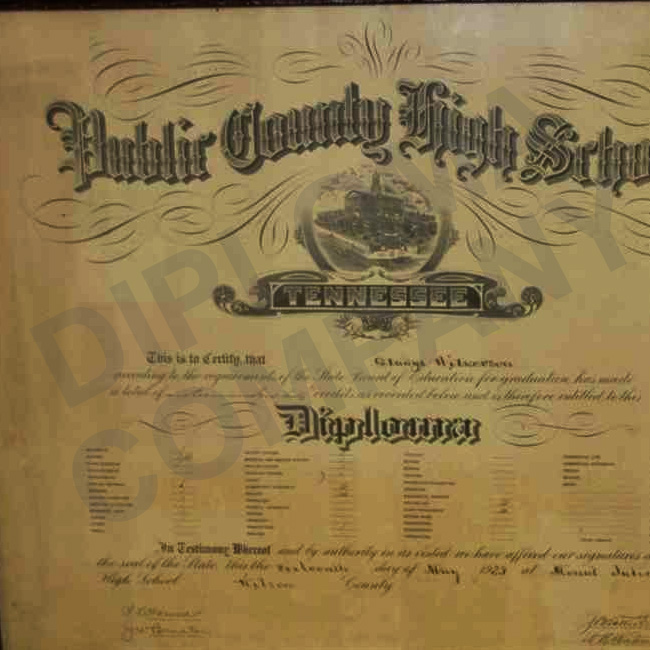

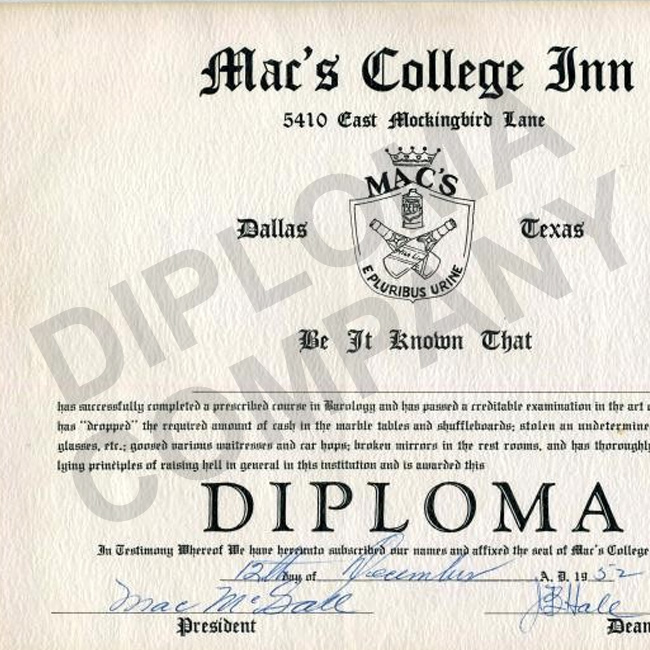

Modern Era Diploma Design (1980s-2000s)
Before the digital printing revolution, diplomas were more than just certificates of achievement—they were works of art. With fewer graduates overall, schools could focus on creating a limited number of beautifully crafted documents rather than mass-producing thousands of them at once.
One of the most striking differences between diplomas from the 1900s to 1980s and those produced today are the decorative borders that wrap around the edge of the certificate. Some schools even included the school's name within the border. And although these diplomas featured rich black inks, color printing was not as easily obtainable as it is today.
Another lesser-known fact about older diplomas is that many were printed on sheepskin instead of the typical diploma paper used by schools today. However, sheepskin ages over time, which is why many older diplomas show signs of wear and tear and yellowing.
Perhaps the most noticeable difference between older diplomas and those produced today are the signatures. As you can see in the examples above, the signatures were hand-signed, which was very common during this period. With fewer graduates, officials had time to sign each diploma individually. Today, however, with thousands of graduates per semester at many top schools, signatures are digitally printed with an auto-pen onto each document. A hand-signed diploma is truly a piece of our history. While some schools still hand-sign diplomas today, they are rare and often associated with lesser-known private institutes.
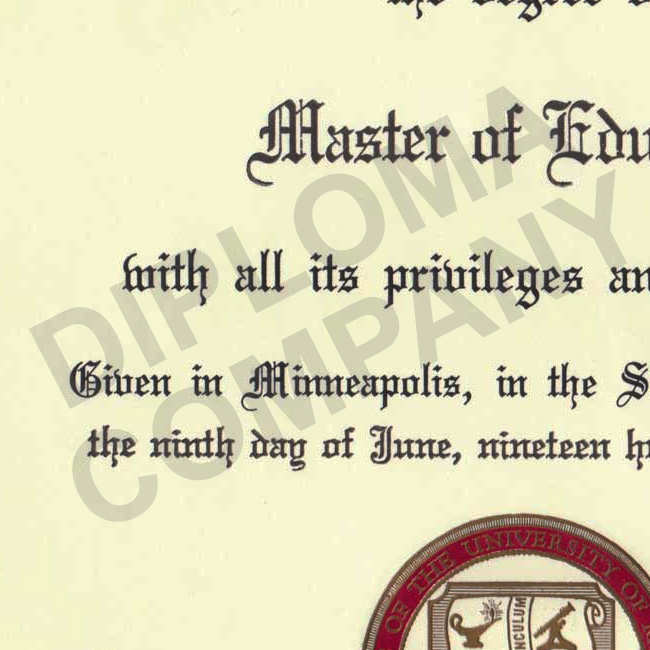

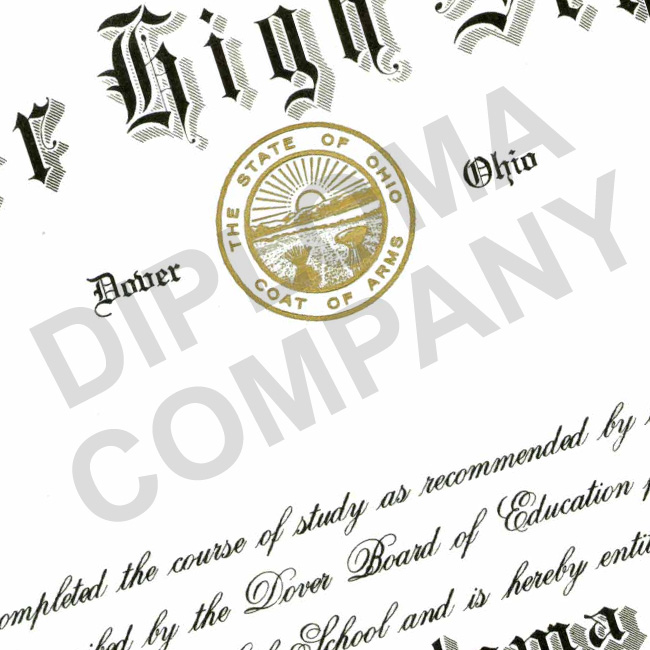

Despite the changes in design, one thing remained constant: the use of high-quality paper. While the sheepskin used in older diplomas was phased out, schools still opted for thick, durable paper that could withstand the test of time. It wasn't until later in the 80s when some schools began experimenting with glossy finishes and even plastic-like materials for their diplomas, but this trend didn't last long as they proved to be less durable and susceptible to damage.
As we approach the end of the 80s, the use of computer technology and digital printing began to revolutionize the diploma production process. While this was initially met with some resistance due to concerns over authenticity, the benefits of efficiency and cost-effectiveness ultimately won out. This led to a shift towards more uniform designs and standardized templates, resulting in less variation in diploma design across different schools and institutions.
Overall, the evolution of diplomas from the 1900s to the 1980s highlights the importance of balancing aesthetics and functionality. While older diplomas showcased intricate designs and hand-signed signatures, the need for mass production in the latter half of the 20th century led to a shift towards simpler designs and the use of printing technology. However, even with these changes, the diploma remains a symbol of achievement and a cherished artifact of one's educational journey.
Diploma History -- Present
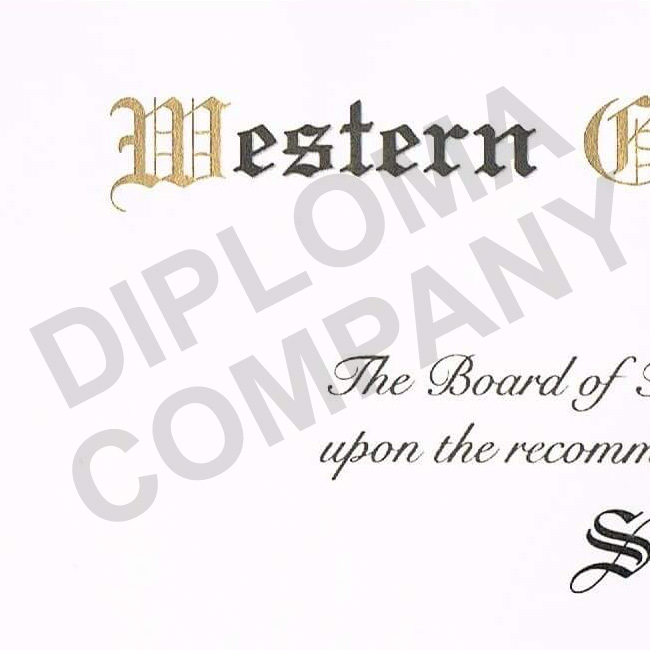

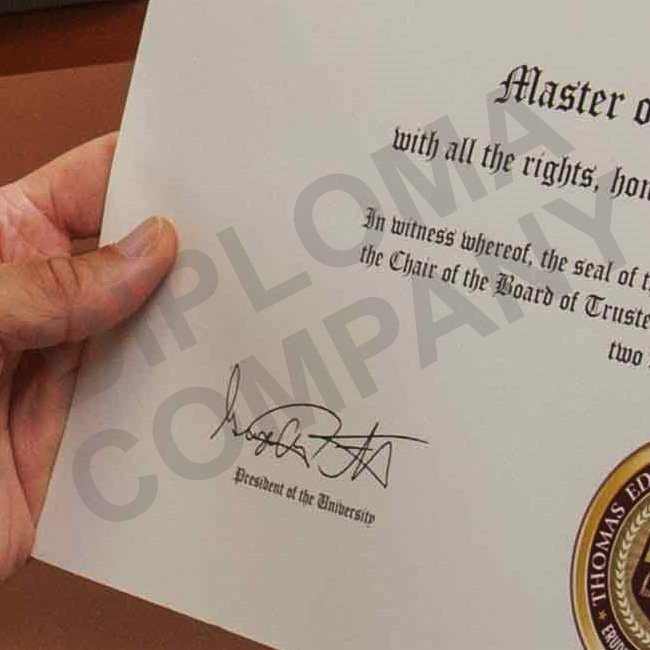

Due to the arrival of online colleges and private institutes, the number of college attendees continued to skyrocket at an even faster rate. Fortunately, modern advances in printing and lower cost materials including color inks, have kept up with the demand of custom diplomas obtainable by these institutes. These days, students are awarded with graduate diplomas that showcase less decorative borders than those graduates before them but documents with more colors and applied crafts, such as embossing techniques that were not available before. You can see a great assortment of diplomas from this period, and a few older ones, in our diploma gallery.
This does not imply that all diplomas today are full of color and sheen either. For instance, we have spotted many diplomas from high schools and even diplomas from colleges in some smaller cities that still choose to print in all black to cut costs for taxpayer-funded certificates. This also doesn't mean that schools have all revamped their designs for more modern layouts. We know many schools that still use the same diploma layout design from fifty years ago, today. The truth is, many colleges and universities have diplomas whose look is as commonplace as their team's colors or mascot! Many schools refuse to change because, as the old saying goes, if it isn't broken, don't fix it.
Still, the possibilities of what can be achieved with a diploma have changed as our printing and production techniques have vastly improved. In the end, what most schools are doing is allowing modern day techniques to easily produce the classic diploma designs their schools are known for.
I hope what you've gathered from this lesson in diploma history is that not all graduate degree certificates are alike and when ordering a replacements online or investing in novelty diplomas to fool a friend with, it's important that the company creating your document has a true understanding of diplomas to ensure your document highlights the elements and characteristics that make it unique.
Want a Diploma? Check our DiplomaCompany.com!
The history of diplomas is a rich past, but Diploma Company looks toward the future. Oue passion about diploma and a deep understanding of their characteristics and design, allowing us, as a professional provider of fake diplomas and transcripts, to replica them in great detail. Whether you want a novelty as a prank, a personal replacement for a lost or damaged diploma, or a prop for a film or production, we deliver high-quality prints that exceed our customers' expectations.
Whether you want to or , choose from high school, GED, college, and university choices today. Everything is a realistic recreation by applying the best seals, accurate layouts, proper paper styles, and more!
If you need help placing your order or assistance with your request, we're here for you! Simply give us a call at 866-687-5403 or start a chat.
Resources
For other information, . For more details about the history of diplomas, and helpful resources, check out some links below:
